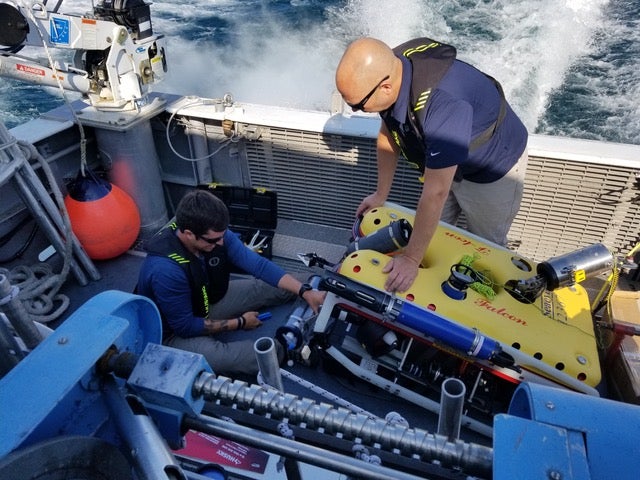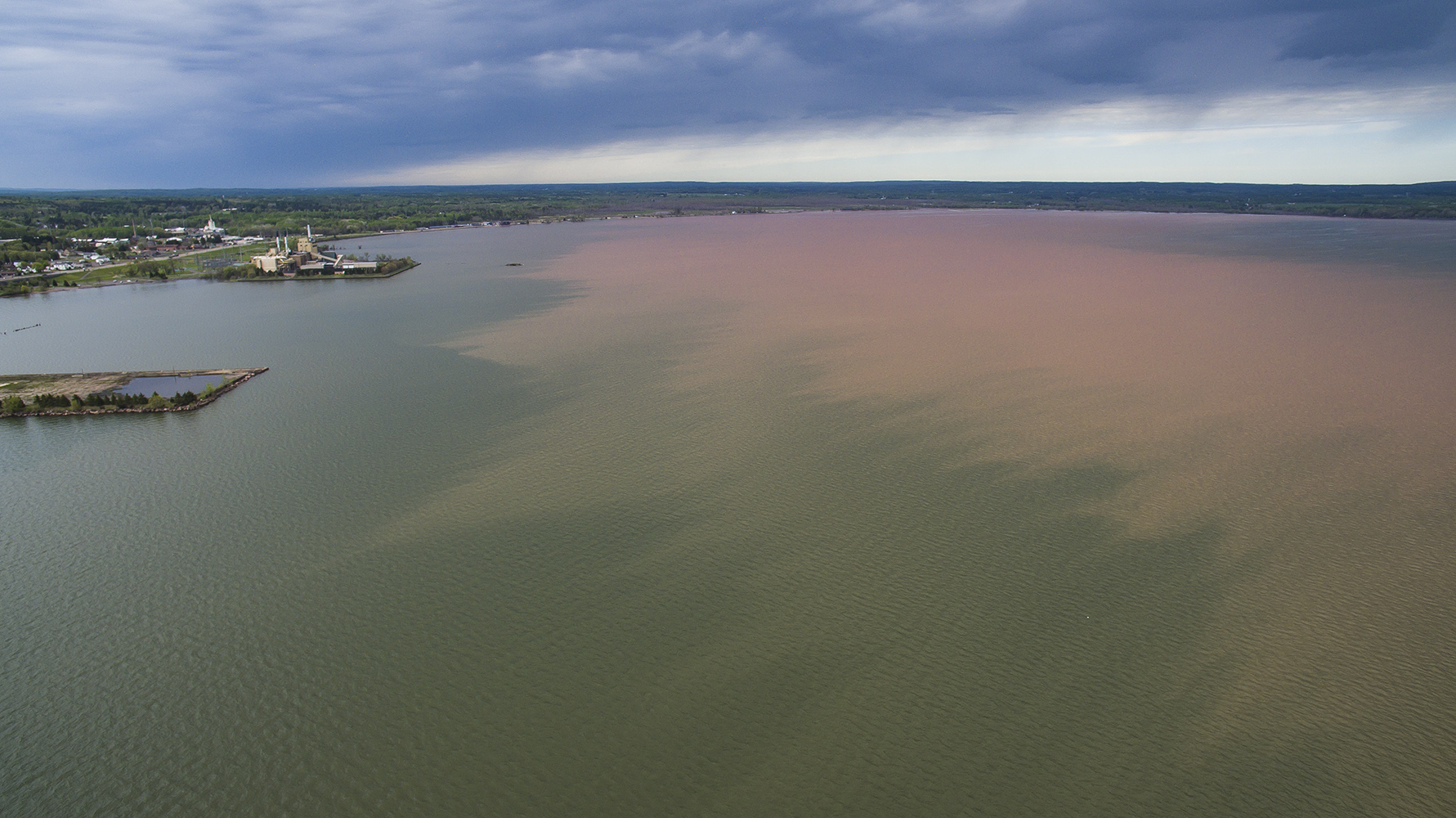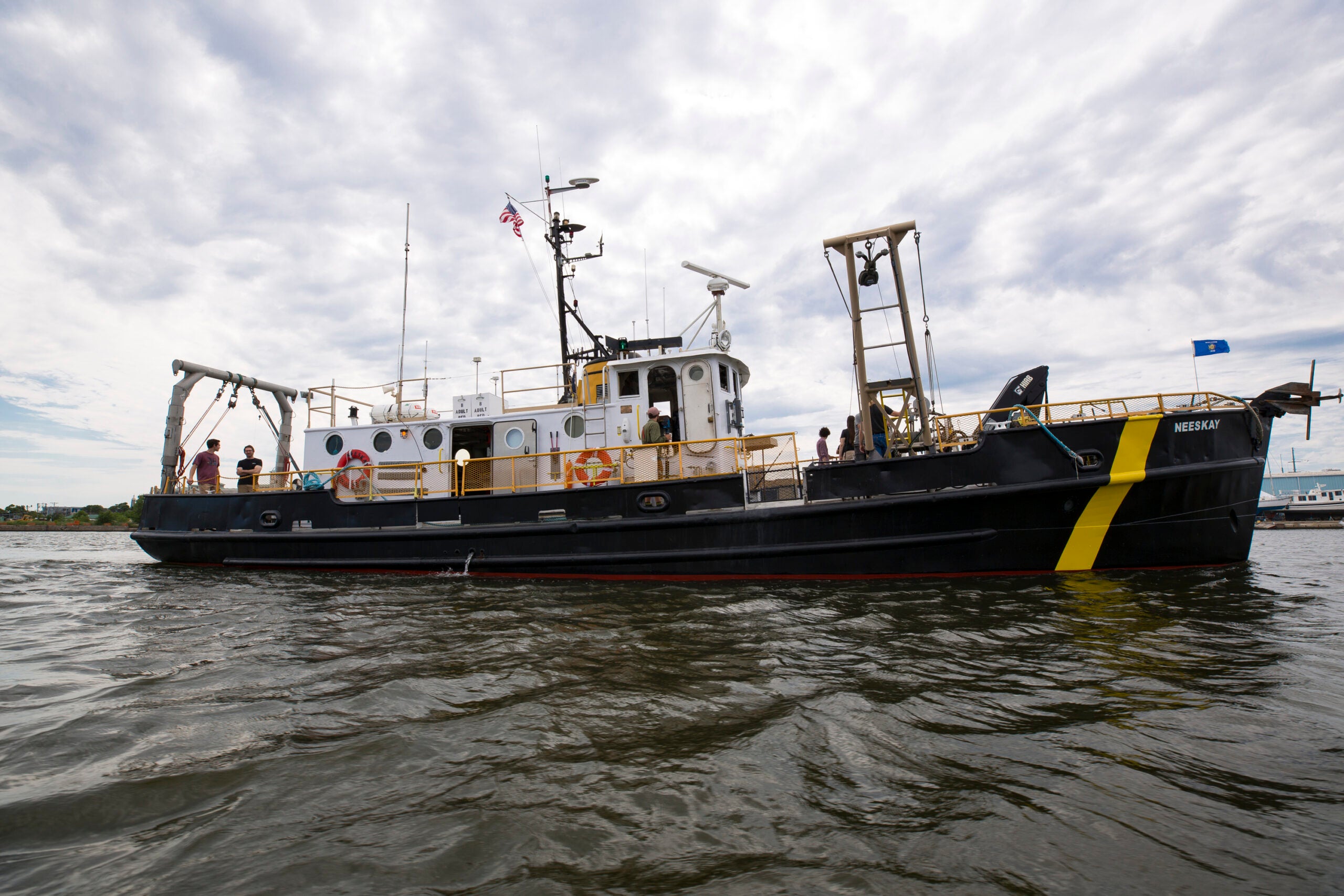Some Great Lakes scientists are concerned about possible federal budget cuts affecting their work as the fate of spending next year on Great Lakes research is still foggy.
Congress has started to reverse some of President Donald Trump’s budget plans for the Great Lakes, which were announced earlier this year. It now looks like the Great Lakes Restoration Initiative won’t be zeroed out in the federal budget, and neither will the Sea Grant program.
But it’s a little too early to say for sure about possible smaller cuts. Some scientists are also concerned about potential trimming to research funded by the U.S. Environmental Protection Agency and other federal departments.
Stay informed on the latest news
Sign up for WPR’s email newsletter.
One of those scientists is Sandra McLellan, a professor in the School of Freshwater Sciences at the University of Wisconsin-Milwaukee. She and her students often analyze water samples from the Lake Michigan harbor. She said her team is typically looking for bacteria.

Sandra McLellan. Chuck Quirmbach/WPR
“What we really want to know is, what is the load of these bacteria from the city when it rains? The storm water, leaking sewage, sometimes when it’s really severe, combined sewage overflows,” McLellan said.
Some of McLellan’s work has been federally funded. As the UW-Milwaukee research vessel, Neeskay, took journalists on a harbor tour organized by the Institute for Journalism and Natural Resources, McLellan was asked what studies would be slowed or harmed if research money was cut. Her response? “Oh, I don’t even know where to start.”
McLellan then thought a bit and talked about work she has done to reduce pollution at Milwaukee beaches. The studies are entering a new phase looking at the source of harmful bacteria.
“So, we have an experiment deployed now, up the shoreline at a secret location, buried with E.coli. We’re going to see who’s the last guy standing and the genetics of the E.coli,” McLellan explained.
Other researchers at UW-Milwaukee say they also worry about plans to take away some federal dollars.
Professor Harvey Bootsma said cuts might delay a scientific analysis of whether there are proper limits on phosphorus going into Lake Michigan. He said agencies like the Wisconsin Department of Natural Resources are trying to decide what level of the chemical is right to provide more food for fish, but not add to harmful algae.

Associate Professor Harvey Bootsma, left, and Assistant Dean Eric Leaf of the University of Wisconsin-Milwaukee School of Freshwater Sciences. Chuck Quirmbach/WPR
“Can we find a sweet spot where you’re still supporting this offshore fishery, but you’re also managing this nearshore algae problem? We don’t quite have the answer to that yet, and it may be you can’t do both of those completely to your satisfaction. You may have to find some compromise there,” Bootsma told reporters last week.
A supporter of federal budget cuts says a middle ground is all he wants.
H.Sterling Burnett, of the Illinois-based Heartland Institute, said the Trump administration isn’t trying to stop the funding of science. But Burnett said Washington has to start reducing debt and deficits.
“We have to tighten our belts, and that means the federal government has to get back to its core responsibilities. You won’t find energy mentioned in the Constitution, you won’t find environment mentioned in the Constitution. You’ll find national defense. You’ll find certain core things,” Burnett said.
Burnett said it might be time for states like Wisconsin to step up spending on Great Lakes research.
But Eric Leaf, UW-Milwaukee Freshwater Sciences assistant dean, said that doesn’t seem likely.
“I don’t think the states can handle that research agenda. I don’t think they’d have the desire to handle it. I don’t think they’d have the will to handle it,” Leaf said. “Increasingly, we’re seeing, for example, departments of natural resources shrinking or losing their scientists.”
He adds that the Great Lakes are an international body of water and argues it’s up to national governments in the United States and Canada to fund most of the studies.
The budget discussions will resume next month when Congress returns to Washington from their August break. But even programs that might escape a big slicing this year are gearing up for several years of battle.
Moira Harrington, with University of Wisconsin Sea Grant, said she expects more to come.
”I think we fully expect, in every year of this remaining administration, to see this sort of attack on any kind of environmental science program,” Harrington said.
Harrington said Sea Grant and other agencies will just have to have faith in their mission and be prepared to prove their value to elected officials.
Wisconsin Public Radio, © Copyright 2025, Board of Regents of the University of Wisconsin System and Wisconsin Educational Communications Board.






